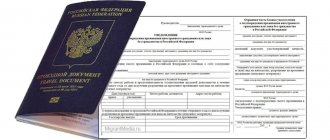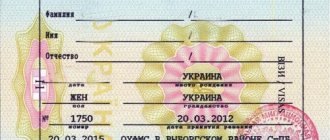general information
So why exactly is Japan so attractive to foreign employees? Firstly, this country really occupies a leading position in world rankings in terms of social security, wages and decent working conditions for both Japanese citizens and immigrant workers on its territory. Secondly, highly qualified specialists can obtain a residence permit in the country, which will give them the right to live in one of the most developed and safe countries in the world (the crime rate in Japan is considered one of the lowest in the world). The advantage is the greater responsibility of employers, who usually pay salary supplements for the maintenance of children, and often pay the cost of travel for employees from and to work. Some firms even provide housing to valuable foreign employees without requiring them to pay.
The population of Japan in 2021 is approximately 126.9 million. The bulk of local citizens are employed in the service sector (72.2%) and industry (26.6%)
Today, unemployment in Japan barely reaches 3%. Salaries in the country are above the European average, while they continue to grow by 3–5% annually. In addition, bonus payments are an integral part of Japanese working life. Employers, although this is not stipulated in the contract, pay bonuses to employees two or three times a year. Their number and size depend on the company's profit, but the mere fact of such incentives encourages employees to work harder.
However, in addition to the advantages of moving, one must also take into account the disadvantages of this country, which primarily concern foreigners.

Japan has one of the most powerful economies in the world. This is facilitated by the widespread use of advanced technology, effective government reforms and a disciplined workforce
Thus, the most difficult problem for immigrants to overcome is the difficulty of learning Japanese. Despite the fact that many Russian universities offer courses in this language, and numerous Russian-language textbooks are freely available, it is extremely difficult for Russians to actually speak and understand Japanese. However, without the Japanese language, employment in this country is virtually impossible. A great advantage for foreigners who are not fully versed in Japanese will be perfect knowledge of English, however, this cannot guarantee your employment. Also, sometimes a surprise for Russian immigrants is the mentality of the Japanese, which is significantly different from ours. The fact is that the characteristics of the nation are reflected not only in the daily life of the Japanese, but also in the work sphere. For example, in Japanese, there is only “we”. Thus, the poor quality of work of one employee is painfully perceived by the entire team. In addition, the Japanese have a positive attitude towards overtime work, which is not typical for immigrants from Russia or Europe.
Some statistics: Japan ranks third in the world ranking in terms of nominal GDP. It also ranks seventeenth on the Human Development Index and is the country with the highest life expectancy (about 82 years).
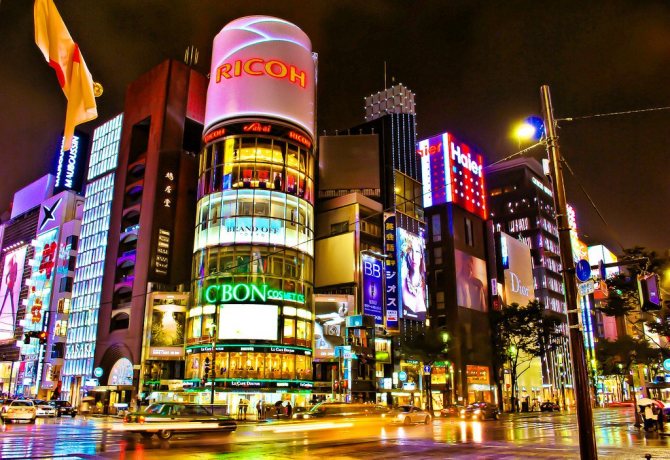
Working in Japan for Russians and Ukrainians in 2021, especially those with sufficient qualifications and experience, is a very real task
Previously, a diploma from a prestigious university, such as Tokyo, guaranteed a successful career. It didn’t matter whether he was really a good specialist or whether he was as empty as a plug. Now there is no such thing. Knowledge is important now. A person without a higher education can find a better job than a university graduate if he knows his business well. But most Japanese do graduate from university. This is considered important.
Dmitry Shamov
https://asiarussia.ru/persons/6466/
How and where to look for work in Japan
Most often, labor immigrants find work on the Internet. As a rule, they turn to special portals where job advertisements are posted. The most requested of them:
- Gaijin Pot is a site where you can not only study the current situation on the Japanese labor market, but also get information about life and employment in this country. It cannot be said that the resource provides many opportunities directly for foreign employees, since most of the vacancies posted there are designed for citizens of the country. However, foreigners also have every chance of finding a suitable position here. In any case, you can always contact your employer and try to convince him that you can cope with your job responsibilities as well as any Japanese;
- Daijob is an English-language resource equipped with a convenient and intuitive interface. Here you can search directly for vacancies that suit you, without scrolling through many unnecessary advertisements. Most of the vacancies on the site are related to the field of programming and computer technology, but there are many exceptions. It is good for highly qualified specialists to look for work here - most of the vacancies are designed specifically for them. However, when accessing this resource, be prepared for the fact that you will need knowledge of the Japanese language;
- Tokyo Connections is a resource designed specifically for finding work in the city of Tokyo or its suburbs. The advantage of the site is that it contains not only job advertisements, but also up-to-date information about employment in Tokyo and the situation on the local labor market;
- the working social network linkedin.com is a resource where specialists from all over the world can learn more about employment in different countries, including Japan. Here you can find potential employers or people who can advise you on how and where you can find work in Japan;
- JapanEnglishTeacher is a separate resource where people with appropriate education can find work in Japan as English teachers. Of course, preference is given to foreigners from English-speaking countries, however, people from the CIS countries can also try themselves in this direction. Experience working in European countries or extensive experience teaching English in your home country will be a plus.
Job openings may also be published in local publications. The most popular newspapers are Kansai Scene, Metropolis, Japanzine and The Japan Times. You do not have to buy printed versions of the issues - all publications are freely available on the Internet, current information is updated upon the release of new editions.
However, not all vacancies can be found by analyzing available sources. For some, it is necessary to contact employers directly, since such announcements are rarely published. This is especially true for specialists of a narrow profile. A little advice: try to find out about vacancies in international companies that necessarily employ English-speaking specialists (for example, Toyota Motor, Mizuho Financial, Hitachi, Mitsubishi and others).
If you have neither the time nor the desire to search for a vacancy on your own, but have the money to pay for the services of specialists in this area, you can always turn to numerous recruitment agencies . It is better to choose Japanese ones, since Russian agencies are not always competent in finding prestigious vacancies. When looking for intermediaries, carefully read reviews of their work. Often, naive Russians, having never encountered employment in Japan before, become victims of scammers who offer help in finding a job, but in fact cannot provide it. Remember: if the agency is truly competent in this matter, comments about their work should be on the Internet. If there are no people who would resort to the services of this institution, then this is only a reason to think about it.

Yen is the national currency of Japan
You can also contact government specialized agencies. Thus, the most popular labor exchange is HelloWork. The institution's branches are located in many regions of Japan. Every day, many advertisements are posted on the exchange website, which may be suitable for both specialists with knowledge of the language and foreigners who are looking for a job that does not require special skills. By the way, even students can find work on the site, since many vacancies require part-time work or a more or less flexible schedule.
Everything ultimately depends on the person, no matter how trite it sounds. If you don’t mess up yourself, Japan and the Japanese will repay you handsomely. I studied and lived there myself and felt it myself. By the way, during language training, a Buryat woman studied with me in the group, but she did not know Buryat and even called herself Russian. If she knew Buryatks, then learning Japanese would be much easier for her. Mongolian and Japanese are quite similar languages.
men
https://asiarussia.ru/persons/6466/
Job Search Methods
As to whether it is difficult to find a job in Japan, one can answer in the affirmative, since there are several promising programs for foreigners at the government level, and negatively, because there is a strict condition for good knowledge of the Japanese language.

But if there is a desire and certain inclinations to study thousands of hieroglyphs, as well as the absence of fear that you will have to work 24 hours a day, then success is guaranteed. The main thing is determination and workaholism.
Is a visa to Japan for Russians always needed except for transit for no longer than 72 hours?
Location
It is best to look for work in big cities. Previously in the capital Tokyo.
Other major centers:
| Region | City |
| Hokkaido | Hakodate; Asahikawa |
| Tohoku | Aomori; Akita; Iwaki; Korpiyama |
| Kanto | Kawagoi; Funabashi; Yokosuka |
| Tube | Nagano; Toyota; Okazaki |
| Kanasai | Otsu; Himeji; Amagasaki; Wakayama |
| Chugoku | Fukuyama; Hiroshima; Kurashiki |
| Shikoku | Koti; Matsuyama |
| Kyushu | Nagasaki; Oita; Miyazaki |
Himself
- You need to start with the official HelloWork employment service. Its branches are located throughout the territory. On the website you can find all the necessary information https://www.hellowork.go.jp:
- vacancy database;
- samples of resumes, autobiographies, questionnaires;
- interview tips;
- the general situation on the labor market and the economy.
- Internet
Russian-language specialized portals:
- japan.rabota.mail.ru;
- japan.hh.ru.
English-language electronic exchanges:
- jobs.gaijinpot.com;
- www.tokyonoticeboard.co.jp;
- www.daijob.com/en;
- getstudents.net;
- www.jobsinjapan.com;
- jobfinder.metropolis.co.jp;
- jobs.japantimes.com/index_e.php;
- www.enetsc.com/WorkinJapan.htm.
For those looking for part-time work:
- www.baitoru.com;
- www.baitonet.com.
- mass media
Mostly, advertisements for hot vacancies are published in free paper magazines and newspapers. They are laid out right at commuter train stations and in the metro. You can also see a lot of posted advertisements in the subway.
The advantage of this method is that you can start immediately.
- Private advertisements
Suitable for those who are already in the country. The simplest option for those who need temporary work or part-time work (arubaito).
Employers post advertisements in the windows of their establishments, so if you are careful, it is not difficult to find something acceptable.
Through an intermediary
In the case of Japan, this is a very good method, since specialists in recruiting companies have complete information about the labor market and provide assistance in drawing up resumes and letters of recommendation.

The services are not cheap and will cost at least $500, but they will pay for themselves very quickly.
How can a Russian get Japanese citizenship - or how to stay in the land of the “rising sun”?
However, one should not forget to be careful and choose only trusted companies, for example:
- HIWORK: staff.hiwork.jp;
- NINJA: nextinjapan.com.
Where can I get a job?
The Japanese labor market requires both professionals and ordinary workers. Among the qualified specialists we can highlight representatives of the field of programming and computer software. These specialists can be in demand both in large international organizations and in small local firms. after all, modern Japan is known throughout the world for its desire for innovative technologies. Salaries in this case can reach 400,000 yen or even more. PL/SQL development specialists will receive slightly less.
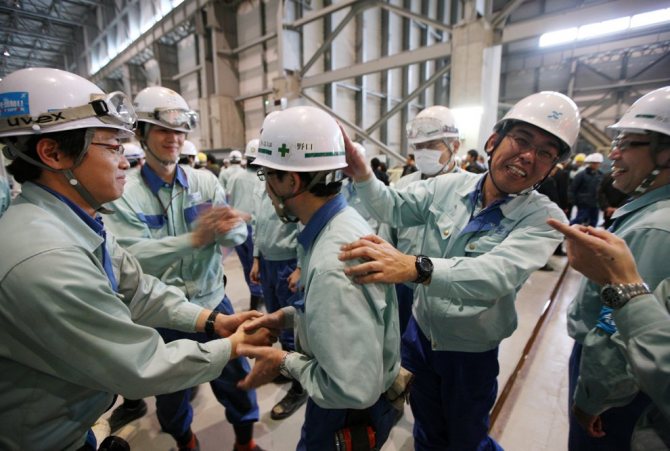
Highly qualified specialists have a better chance of finding employment in Japan
...I lived in Japan for 4 years and I know for sure that there are jobs without experience. Because even if there is education, but it’s Russian, it doesn’t matter. It doesn't seem to exist in Japan. There is work for such people. This is a job that the Japanese don't want to do. Very difficult and low paid...
olyasozera
https://yaponya.net/index.php?topic=7.msg5000#msg5000
Since the country pays great attention to the development of the healthcare system, Japan is trying to attract experienced specialists in the field of medicine and science from around the world. Thus, for work in the field of clinical research or pharmaceutical production, highly sought-after workers can receive from 500,000 yen per month. It is also possible to find employment as surgeons, anesthesiologists, resuscitators, and so on. The main criteria for hiring in this case will be experience and the availability of recommendations. The more years you have devoted to working in your profession and the greater heights you have achieved in this field, the greater your chances of taking a prestigious vacancy in one of the famous clinics or research centers in Japan.
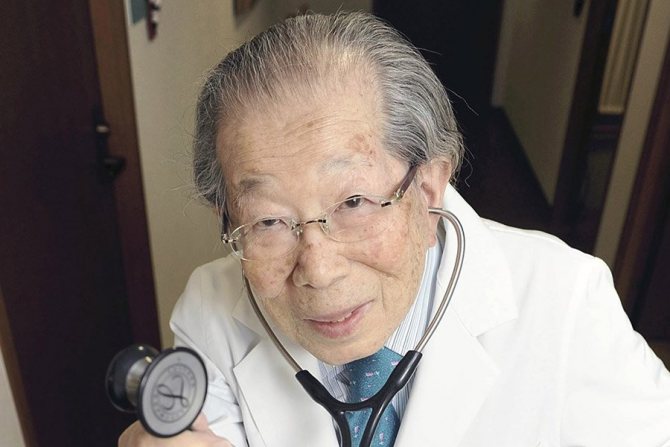
Highly qualified doctors are in great demand in the country
In Japan, the trend towards learning the Russian language is gaining momentum. Russian-speaking immigrants can try themselves as teachers. Having a pedagogical education will be a big plus - this way you can find work in language schools or specialized gymnasiums. If you have not studied to become a teacher, you can take special courses that give you the right to work with children. And, although you will not have the right to teach in the above educational institutions, you will still be able to teach Russian to young children. There is also the option of private teaching, however, this is also strict in Japan: for private teaching, you must register your activities and pay taxes to the state. For teaching, it is desirable to know Japanese, and if we are talking about working with young children, then this requirement will be mandatory. If you plan to work with an older audience, you can teach in English, but this is the exception to the rule rather than the rule itself.
...If you have a specialty - English and good pronunciation, you can get a job as a teacher. Especially in a village where there are few foreigners. Somewhere in Fukushima there are clearly not enough people. I think it’s also possible in another specialty. You only need good Japanese and 100% some kind of exam to work as a teacher. There are international schools and if you speak Japanese and English, you can try to get a job there...
Shirahime
https://gaku.ru/forum/viewtopic.php?f=7&t=1619&sid=cb6c080fbcf20b293dfe2dc97e2c2380#p17847
Russians often use their Slavic appearance as their main advantage. Despite the fact that no one is surprised by foreigners in Japan, having a non-standard appearance, by local standards, can significantly help you when finding a job. It will be a big plus if you have light eyes, skin and hair - such people will always stand out against the background of dark-haired and brown-eyed Japanese. In this case, you can get a job as a photo model, fashion model, presenter, and so on. Many foreigners first work in local bars and clubs. This activity should not be confused with an ancient profession - in this case, the employer must guarantee you protection and provide absolutely legal and acceptable work.

In Japan, models and artists of Slavic appearance are highly valued
…I’ve been living in Japan for 5 years now. I work as a translator. I saw the hostess. Although prostitution is officially prohibited in our country (they will immediately be thrown out of the country with an entry ban for up to 5 years), it still exists, even illegally. Tokyo is full of brothels, such as the official one on the street. Red lanterns and others - underground...
Dark krishna
https://www.woman.ru/psycho/career/thread/4042946/2/#m54052450
List of the most in-demand professions in Japan for 2021:
- engineers;
- architects;
- computer specialists and programmers;
- marketers;
- security workers;
- doctors;
- hostess
Video: the most in-demand professions
Table: how much do representatives of different professions earn in Japan
| Profession | Salary (yen per month) |
| Specialist doctor | 900000 |
| Advocate | 850000 |
| School teacher | 550000 |
| Civil servant (in the field of law enforcement, fire safety, etc.) | 500000 |
| Courier | 440000 |
| Employees in the office |
|
| Nurse | 390000 |
| Bus driver | 320000 |
| Environmental and interior design specialist | 300000 |
| Cashier | 230000 |
| Builder | 250000 |
| Taxi driver | 240000 |
...To live like an average teacher in Russia, you need to spend at least $1,800 a month. Note that it is spending, not earning. Those. to feel more or less comfortable here, as I wrote before, monthly costs will range from 2 to 2.5 thousand bucks...
Leonid
https://yaponya.net/index.php?topic=7.msg5023#msg5023
Popular specialties
Despite the strict policy regarding labor immigration, a suitable vacancy can still be found there.
Is a visa to Japan for Russians always needed except for transit for no longer than 72 hours?

Priority is given to high professionals with rare skills. They are in demand both in large corporations and in medium-sized companies. However, there is also a chance for service personnel.
In 2019, there is a need for the following areas of activity:
| Speciality | Average monthly earnings ($) |
| Restaurants; bars; cafe: | |
| cook | 400 — 800 |
| waiter | 400 — 800 |
| hostess | 400 — 800 |
| barista | 400 — 800 |
| Social services: | |
| caregivers at senior citizens centers (for women) | 400 — 800 |
| assistants (for men) | 400 — 800 |
| Trade: | |
| sellers | 400 — 800 |
| consultants | 400 — 800 |
| Education: | |
| foreign language tutors | 400 — 800 |
| Entertainment industry: | |
| cinema and park employees | 400 — 800 |
| Engineers | 4000 – 7000 |
| Programmers | 4000 – 7000 |
| System administrators | 4000 – 7000 |
| Others and IT specialists | 4000 – 7000 |
| Fashion designers | 5000 — 10000 |
| Models | 5000 — 10000 |
| Architects | 5000 — 10000 |
In the modeling business, a non-standard approach and original solutions are valued. And among the models, girls and young people of European appearance are in demand. The interest in them is so high that even non-professionals with no experience who meet the parameters can sign a one-time contract. They are also included in the databases of various modeling agencies, and this provides the opportunity for active freelancing. After gaining some experience, you can enter into long-term contracts. Hostessing in Japan for young women involves some aspects of consummation. The duties include not only meeting and seating important clients, but also accompanying them, including dancing, singing karaoke, choosing menus and drinks.
Features of working in Japan
I would like to start right away with the fact that the employment of men and women in Japan has significant differences. Thus, it is men who have a greater chance of getting into prestigious vacancies. However, even if we are talking about a common low-paid position, the salary of representatives of the stronger sex will still be significantly higher . Women with small children have major problems with employment; in this case, getting a good position is extremely unlikely. Nevertheless, it is worth saying that the Japanese government is actively fighting the problem of gender inequality in the country. The Women in the Workplace Act was introduced in 2021, although not all companies actually follow it. Sometimes the refusal to provide work to women is justified in a completely absurd way: non-standard appearance, large stature, speech impediments and other points that in reality you may not have.
The average salary in Japan is 250,000 yen per month. Foreigners in Japan can expect a minimum monthly wage of approximately 160,000-200,000 yen. In November 2017, 200,000 yen was equal to just over 102,000 rubles. It must be said that not every highly sought-after specialist in Russia and the CIS countries receives that much. Representatives of narrow, in-demand specialties can receive up to 350,000 yen per month.
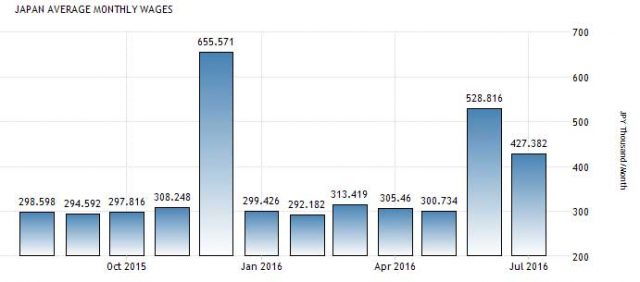
Statistics on the average salary of Japanese people (figures are in thousands of yen)
A little about overtime: For a long time, the practice of “working after work” was widespread. The hardworking Japanese not only did not object to this, but also took the initiative themselves, because the payment for overtime hours was higher than the usual hourly wage, and the positive attitude towards excessive work itself had been formed over the centuries. Not long ago, this topic was once again raised by the Ministry of Health, Labor and Welfare (MHLW - Ministry of Health, Labor, and Welfare), which opposed overwork from the point of view of its harmfulness to the physical and psychological well-being of workers. At the moment, the maximum possible overtime work time is strictly regulated by law.
Table: how much overtime the Japanese can work
| Time interval | Working hours |
| 1 Week | 15 hours |
| 2 weeks | 27 hours |
| 4 weeks | 43 hours |
| 1 calendar month | 45 hours |
| 2 calendar months | 81 hours |
| 3 calendar months | 120 hours |
The norm today is an eight-hour working day with a weekly maximum of forty hours. However, often hardworking Japanese still use the maximum possible number of overtime hours, which is only allowed by law, in order to still at least slightly improve their work performance. This point is one of the most controversial from the point of view of Russian immigrants, since in Russia the attitude towards overtime work is usually completely opposite.
Often the main problem is language. As a rule, employers require knowledge of Japanese at the N2 or N1 level, and some even want to see employees on their staff who speak Japanese no worse than native speakers. Therefore, it will be a big advantage if you start learning the language in your home country. Of course, it is much easier to learn Japanese directly in Japan. This can be done either with the help of private teachers or in numerous institutions. However, before doing this, you need to soberly assess the time you will need to study. Thus, many Russians cannot master the Japanese language for many months and even years. Before leaving for Japan to study the language, take into account the possibility of difficulties, since the state gives you the right to study for as long as it takes, but during this time you will need to live on something.
... Whatever one may say, you need to learn a language in order to find a warm place. And it’s not easy to learn to speak and understand, as well as read and write, preferably without a dictionary. Otherwise, the usual “home-work-home” pattern awaits you, and so on every day with short walks around the area. And you can get this at home without Japan...
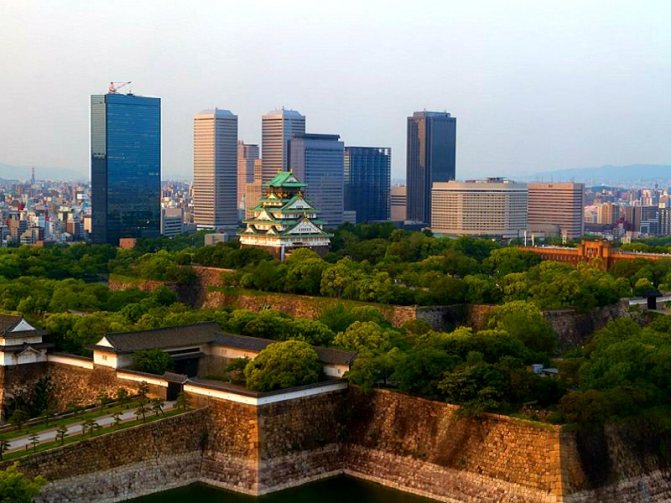
Before leaving, be sure to analyze which city in the country is best to go to in your case. The most popular cities among immigrants:
- Tokyo is the capital of the country. It is here that the financial, business, industrial and cultural life of Japan is concentrated;
- Osaka is one of the most attractive cities for immigrants, located on the island of Honshu. The tourism and educational industries are especially developed here. The city is the third largest in terms of population, so you can always find vacancies in the service sector;
- Sapporo is a city on the island of Hokkaido. It is considered the second most important economic, industrial, educational and cultural center of the country;
- Niigata is the largest port city;
- Yokohama is an economically developed city located near the capital;
- Fukuoka is an important industrial center.
Video: working in Japan (arubaito)
About working conditions
Minimum wage
This indicator is established at the legislative level for each industry separately. On average for all directions it is approximately 163,200–219,800 yen ($1,600–2,150). There is also a minimum for those who are employed part-time - 750 yen per hour ($6.25).
Average pay
310,000 yen per month ($3,100).
Gender and age differences:
- Women can expect to be paid about a third less than men for similar work.
- Beginners are offered:
- Bachelors: 170,000–200,000 ($1,660–1,960).
- masters: 180,000 – 250,000 ($1,760 – 2,450).
At first glance, salaries in Japan are not much higher than what can be earned in Europe or America, but they directly depend on the indicator of continuous service at a particular enterprise. The longer an employee works, the higher his:
- bonus amounting to 2 to 3 annual salaries;
- annual indexation from one and a half to three percent, despite zero inflation.
Work time
Officially, the working day is 8 hours from 9:00 to 18:00.
However, it is customary to be there 30 minutes before the start. Many people stay for several hours voluntarily. If a department is given a complex and urgent task, then no one takes time into account. Everyone is obliged to help each other and not shirk. Otherwise, the contract will not be renewed.
The statutory vacation is 14 days. But often people rest for no more than 5 - 4 days in order to prevent blockages on their site.
Such strict labor traditionalism is slightly diluted by national holidays, since these are weekends and all companies and enterprises are simply closed.
How can a Russian get Japanese citizenship - or how to stay in the land of the “rising sun”?
Official employment process
In order to obtain legal work in Japan, you will need to complete paperwork. Pay special attention to visa processing. A work visa in Japan is valid for 90 days from the date of issue.
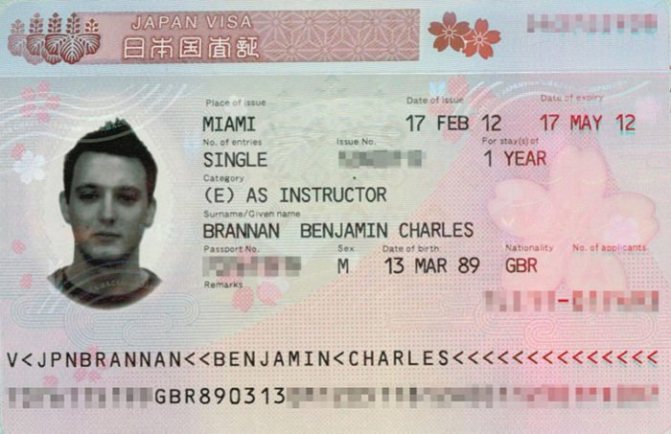
Only with a work visa can an immigrant get a job in Japan
It is important that obtaining a visa document becomes possible only if you obtain a work permit in the country. The latter is usually carried out directly by the employer - he should send an application for a permit to employ a foreigner at the regional Immigration Bureau of the Ministry of Justice. It follows that in order to get a job in Japan, you first need to reach an agreement with an employer who will confirm his desire to hire you.
If permission is received, you can proceed to obtain a visa. You will need the following documents:
- invitation from the receiving party - the employer (original and color copy);
- two copies of the application in the established form;
- two color photographs of the established standard;
- copies of important pages of the applicant’s civil passport;
- original and copies of completed pages of the international passport;
- documents confirming that you have the necessary education;
- for Ukrainians - in addition to a civil passport, you must provide a birth certificate.
Please note that if the need arises, you may be asked to provide additional documents that were not included in the initial list. All related requirements and other documents that you may need can be found here.
Basic requirements for the applicant:
- the applicant must have all the documents necessary to obtain a visa;
- he must intend to come to the country for work activities regulated by the Immigration Control Law;
- it does not fall under the acts prescribed in Article 5, paragraph 1 of the Law “On Immigration Control”.
Since a work visa can be either single or multiple, its cost may also differ:
- three thousand yen - for a single entry;
- six thousand yen - for multiple entries.
The processing time for visa documents usually does not exceed one week.
Video: how to get a visa yourself
...Knowledge of Japanese is generally unimportant when obtaining a visa, at least 1 kyu. at least only knowledge of “Russian and obscene Russian.” In general, everything is strict with the Russian Federation - you must have objective reasons for applying to a consulate located in another state. If you do not have a work visa, then you will not be able to prove to the Japanese consulates, wherever they are located, the advisability of contacting them...
Stellaire
https://forum.awd.ru/viewtopic.php?f=310&t=24164&start=160#p6102828
In order for you to be able to use your Russian education diploma when applying for employment in Japan, you must have it certified with an Apostille stamp. The stamp is placed only on original state-issued education documents; it inherently confirms the authenticity of the document and the seals on it, and also certifies the competence of the person who signed the document. It is recommended to carry out apostilization on the territory of Russia - this will entail fewer difficulties and will cost less (the amount of the state duty for an Apostille stamp is one and a half thousand rubles).
Extension of a visa
If your visa is about to expire, but you still have the opportunity to continue working in Japan, the procedure for renewing your document will not take much time and effort. It is advisable to apply for a visa extension while in Japan. This can be done in the regional department of the immigration bureau of the country's Ministry of Justice . It will issue you with a re-entry permit - with this document you will be able to visit Japan again without first applying for a visa.
Obtaining a work permit and work visa
Work Visa
- Who
The decision is made by the Department of Consular and Immigration Affairs of the Ministry of Foreign Affairs.
- Types of visas suitable for searching vacancies:
| Type | Conditions |
| By date: | |
| short-term | up to 3 months |
| long-term | up to 5 years |
| By type of activity: | |
| medicine | Places restrictions on the scope of work |
| construction | Places restrictions on the scope of work |
| industry | Places restrictions on the scope of work |
| education, etc. | Places restrictions on the scope of work |
| By status | It has no restrictions, so obtaining it is associated with great difficulties |
For high-quality professionals who have an invitation from an employer, a long-term visa for 5 years is provided with the opportunity to bring family members with them:
- Spouses and children are entitled to visas for 1, 3, 5 years, depending on need. The one-year and two-year periods can be extended if necessary.
- Parents receive it for a year, but it can be extended several times.
- Where
Embassy (Consular Section):
- Moscow - 129090, per. Grokholsky, house 27;
- 8;
- 8 (fax);
- [email protected]
- Basic package:
- international passport and a copy of all pages;
- copy of Russian passport;
- two color photos 4.5x4.5 cm;
- two visa forms;
- signed contract (if any);
- letter of guarantee from the employer with information about the person in charge (name, contacts).
This list is not exhaustive. To begin with, it is advisable to contact the consular department. In addition, after submitting an application, the applicant is given a complete list of necessary documents required in his particular case.
Work permit
Issued simultaneously with the visa.
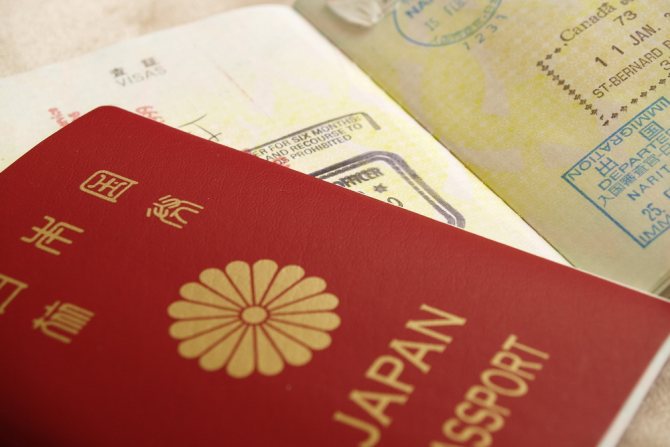
For this purpose the following are submitted:
- A document of education with an official translation into Japanese and certified by a notary.
- Employment contract (for long-term stay).
No entry:
- persons with a criminal record with a prison term of more than one year, including a suspended sentence;
- citizens who have convictions for distribution and possession of narcotic substances, prostitution, pimping, regardless of the term and type of punishment.
Is a visa to Japan for Russians always needed except for transit for no longer than 72 hours?
What threatens illegal immigrants?
Despite its seemingly loyal attitude towards migrant workers, Japan strictly ensures that all foreigners work in the country legally. To control illegal immigrants, inspection measures at the border are being tightened, and special committees are being organized to monitor the condition of workers at local enterprises. However, every year thousands of immigrants seek illegal work in Japan at their own risk.

The Japanese government is cracking down on illegal workers.
It should be said right away that illegal employment, from the point of view of legislation, is equivalent to a criminal offense. You could receive a fine of around 300,000 yen or even an actual sentence of up to five years in prison. The court may also deport illegal immigrants and ban them from entering the country for one to five years.
Video: Japanese interviews or how to find a job in Japan
Internships
Some people mistakenly believe that only graduates of local educational institutions have the right to intern in Japan. This is fundamentally wrong. Not only students, but also specialists who already have experience in this or a related field and want to improve their skills can do an internship in one of the Japanese companies. The internship is also available to foreign citizens.
As a rule, internship programs in Japan are possible for participants of internship programs and people whose educational institution or company they work for cooperates with the host party - a Japanese company that agrees to accept interns. Most often, Russians follow the first path, since not every large Russian company has connections with Japanese colleagues. Thus, participation in internship programs is available to literally any foreigner who can boast of having a profession. The most popular program these days is the Japanese Studies Fellowship. It aims to help find internships for foreigners specializing in the social sciences or humanities. The program involves practice, which can last from three months to a year. During this time, talented trainees (and these are usually the majority) receive a decent stipend (about 300,000 yen).
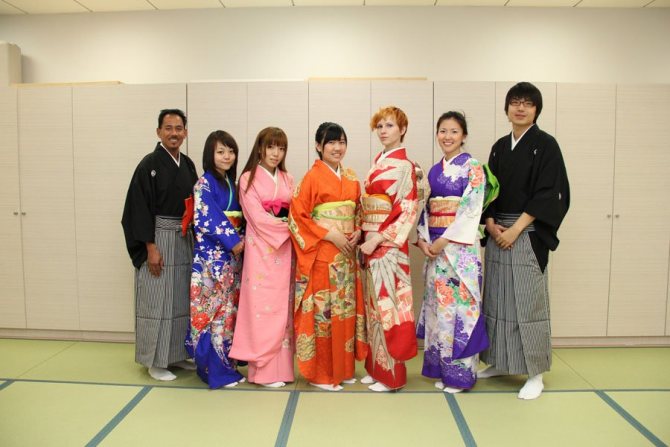
Students from foreign universities have every chance of getting an internship in Japan
The Kenkyusei program is also well known. It was developed and controlled directly by the Japanese Embassy in Russia. As a rule, graduates of Russian universities can take advantage of this research program. More details can be found here.
...For me, the only healthcare representative studying T-TPS, the organizers found an opportunity to show me the leading clinic that provides medical care to employees of the Toyota automobile corporation. Many of the principles of T-TPS, which we saw in production itself (car assembly shop), were also used in this institution...
Nuriev
https://center-kaizen.ru/corp/158/
Also, many programs are offered directly by international companies. This means that the host recruits a group of trainees, usually consisting of people who already have some achievements in the field, and provides training with the goal of preparing new workers for the company. You can find out about the availability of programs directly from the company. As a rule, in this case, a small group of trainees is recruited, so getting into their ranks is quite problematic, however, such internships almost always result in employment.

Representatives of any specialty can find an internship program
...If transfer and arrival is a completely everyday process, then after that the listeners had to join a very active rhythm of life for a week, which included not only adopting the experience of Japanese specialists, but also a cultural program. The main action took place in Nagoya, although there was a tour of Tokyo...
ragequit
https://habrahabr.ru/company/progress/blog/245277/
Video: how much do I earn. Part-time work for students
I was going to study at a language school. However, he did not speak Japanese. AT ALL. An hour before landing on the plane, I was given a form that I had to fill out and present at passport control. It was entirely in Japanese. It looked like an alien tablet. At the airport, I gave this piece of paper to some Japanese guy, and he himself checked the necessary boxes for me. They took my fingerprints and released me in peace.
Dmitriy
https://asiarussia.ru/persons/6466/
Business immigration
Starting your own business is truly a reason to move to Japan. To do this, first of all, you need to open a “business investment, business management” visa, which will initially be valid for four months, after which it can be extended for up to a year. However, the validity period of the first visa should be quite sufficient to analyze the economic environment and register a business. By the way, you can not only open your own, fundamentally new enterprise, but also open a branch of a Japanese company or an office of a subsidiary company.
Business in Japan can only be built on a well-founded plan. The investment amount must reach five million yen. If we are talking about opening a business together with a Japanese citizen, in this case the joint authorized capital must be at least ten million yen. Citizens of the country or at least holders of permanent residence in Japan can be hired full-time in an open enterprise.










